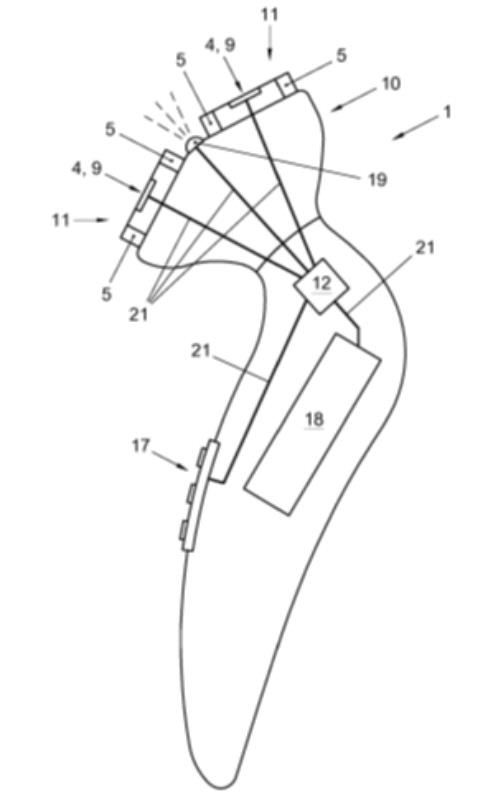A smart material is one that can change its characteristics in response to environmental changes. For example, a smart material may increase or decrease in length when an electric potential is generated across it, or when it comes into contact with a particular chemical.
A common problem when using an electric shaver is that the blades are either not positioned close enough to the skin and leave the job half done, or are too close, causing redness and irritation. This is further complicated by the different areas which need to be shaved using a single device. The same device must be able to shave along the cheek, where skin is soft and also around and under the jaw bone where skin is tougher.
In an attempt to solve this problem, Philips has turned to the use of smart materials.
 Until recently, shape-changing smart materials have been largely used in academic research projects and their use is often regarded as experimental. They can also be costly to apply, which has prevented their widespread use in domestic products. However, recently granted patent EP 3197649 B1 shows how a smart material can be used in a personal grooming device to adjust how close the blades are to the skin.
Until recently, shape-changing smart materials have been largely used in academic research projects and their use is often regarded as experimental. They can also be costly to apply, which has prevented their widespread use in domestic products. However, recently granted patent EP 3197649 B1 shows how a smart material can be used in a personal grooming device to adjust how close the blades are to the skin.
The smart material is able to change shape or stiffness at the request of the user in order to adjust the positioning of the blades. For example, the springs which keep the blades at a distance from the skin can be made softer or harder in order to keep skin further away from, or closer to, the blades. As such, the invention provides an adjustable shaver that helps the user to achieve a close shave.
While smart materials might be well-known to research scientists, this appears to be the first time that a manufacturer has chosen to use them in a shaver. The patent examiner for this patent even noted that "the use of a shape-changing smart material…is not known in the field of shaving devices". As the first company to patent smart materials in shavers, Philips has obtained a very broad monopoly, which could in essence cover all uses of smart materials for adjusting shaving closeness.
This does not necessarily mean that we should expect to see shavers with smart materials being sold in the next few years. By seeking patent protection now, Philips is just establishing its commercial opportunity. The design and development of new products that make use of the inventive concept is likely to follow.
Taking this approach simply prevents a competitor from using the concept while any new product is under development.
This patent emphasises the importance of pursuing patent protection at the earliest opportunity. While competitors might not currently be using smart materials in shavers, the 20-year period of exclusivity that Philips has established means there is plenty of time to innovate a commercially-viable product.











